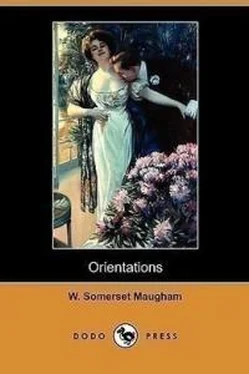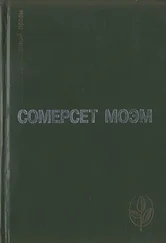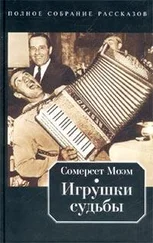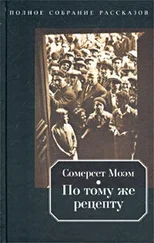Уильям Моэм - Orientations
Здесь есть возможность читать онлайн «Уильям Моэм - Orientations» весь текст электронной книги совершенно бесплатно (целиком полную версию без сокращений). В некоторых случаях можно слушать аудио, скачать через торрент в формате fb2 и присутствует краткое содержание. Год выпуска: 2014, Издательство: epubBooks Classics, Жанр: Классическая проза, на английском языке. Описание произведения, (предисловие) а так же отзывы посетителей доступны на портале библиотеки ЛибКат.
- Название:Orientations
- Автор:
- Издательство:epubBooks Classics
- Жанр:
- Год:2014
- ISBN:нет данных
- Рейтинг книги:5 / 5. Голосов: 1
-
Избранное:Добавить в избранное
- Отзывы:
-
Ваша оценка:
- 100
- 1
- 2
- 3
- 4
- 5
Orientations: краткое содержание, описание и аннотация
Предлагаем к чтению аннотацию, описание, краткое содержание или предисловие (зависит от того, что написал сам автор книги «Orientations»). Если вы не нашли необходимую информацию о книге — напишите в комментариях, мы постараемся отыскать её.
Orientations — читать онлайн бесплатно полную книгу (весь текст) целиком
Ниже представлен текст книги, разбитый по страницам. Система сохранения места последней прочитанной страницы, позволяет с удобством читать онлайн бесплатно книгу «Orientations», без необходимости каждый раз заново искать на чём Вы остановились. Поставьте закладку, и сможете в любой момент перейти на страницу, на которой закончили чтение.
Интервал:
Закладка:
And that is the end of the story of the punctiliousness of Don Sebastian. With his second wife he lived many years, beloved of his sovereign, courted by the world, honoured by all, till he was visited by the Destroyer of Delights and the Leveller of the Grandeur of this World….
VIII
Towards evening, the Duke of Losas passed my hotel, and, seeing me at the door, asked if I had read the manuscript.
'I thought it interesting,' I said, a little coldly, for, of course, I knew no Englishman would have acted like Don Sebastian.
He shrugged his shoulders.
'It is not half so interesting as a good dinner.'
At these words I felt bound to offer him such hospitality as the hotel afforded. I found him a very agreeable messmate. He told me the further history of his family, which nearly became extinct at the end of the last century, since the only son of the seventh duke had, unfortunately, not been born of any duchess. But Ferdinand, who was then King of Spain, was unwilling that an ancient family should die out, and was, at the same time, sorely in want of money; so the titles and honours of the house were continued to the son of the seventh duke, and King Ferdinand built himself another palace.
'But now,' said my guest, mournfully shaking his head, 'it is finished. My palace and a few acres of barren rock are all that remain to me of the lands of my ancestors, and I am the last of the line.'
But I bade him not despair. He was a bachelor and a duke, and not yet forty. I advised him to go to the United States before they put a duty on foreign noblemen; this was before the war; and I recommended him to take Maida Vale and Manchester on his way. Personally, I gave him a letter of introduction to an heiress of my acquaintance at Hampstead; for even in these days it is not so bad a thing to be Duchess of Losas, and the present duke has no brother.
A Bad Example
I
James Clinton was a clerk in the important firm of Haynes, Bryan & Co., and he held in it an important position. He was the very essence of respectability, and he earned one hundred and fifty–six pounds per annum. James Clinton believed in the Church of England and the Conservative party, in the greatness of Great Britain, in the need of more ships for the navy, and in the superiority of city men to other members of the commonweal.
'It's the man of business that makes the world go round,' he was in the habit of saying. 'D'you think, sir, that fifty thousand country squires could rule Great Britain? No; it's the city man, the man who's 'ad a sound business training, that's made England what it is. And that is why I 'old the Conservative party most capable of governing this mighty empire, because it 'as taken the business man to its 'eart. The strength of the Conservative party lies in its brewers and its city men, its bankers and iron–founders and stockbrokers; and as long as the Liberal party is a nest of Socialists and Trades–Unionists and Anarchists, we city men cannot and will not give it our support.'
Except for the lamentable conclusion of his career, he would undoubtedly have become an Imperialist, and the Union of the Great Anglo–Saxon Races would have found in him the sturdiest of supporters!
Mr Clinton was a little, spindly–shanked man, with weak, myopic eyes, protruding fishlike behind his spectacles. His hair was scant, worn long to conceal the baldness of the crown—and Cæsar was pleased to wear a wreath of laurel for the same purpose…. Mr Clinton wore small side–whiskers, but was otherwise clean–shaven, and the lack of beard betrayed the weakness of his mouth; his teeth were decayed and yellow. He was always dressed in a black tail–coat, shiny at the elbows; and he wore a shabby, narrow black tie, with a false diamond stud in his dickey. His grey trousers were baggy at the knees and frayed at the edges; his boots had a masculine and English breadth of toe. His top hat, of antiquated shape, was kept carefully brushed, but always looked as if it were suffering from a recent shower. When he had deserted the frivolous byways in which bachelordom is wont to disport itself for the sober path of the married man, he had begun to carry to and from the city a small black bag to impress upon the world at large his eminent respectability. Mr Clinton was married to Amy, second daughter of John Rayner, Esquire, of Peckham Rye….
II
Every morning Mr Clinton left his house in Camberwell in time to catch the eight–fifty–five train for the city. He made his way up Ludgate Hill, walking sideways, with a projection of the left part of his body, a habit he had acquired from constantly slipping past and between people who walked less rapidly than himself. Such persons always annoyed him; if they were not in a hurry he was, and they had no right to obstruct the way; and it was improper for a city man to loiter in the morning—the luncheon–hour was the time for loitering, no one was then in haste; but in the morning and at night on the way back to the station, one ought to walk at the same pace as everybody else. If Mr Clinton had been head of a firm, he would never have had in his office a man who sauntered in the morning. If a man wanted to loiter, let him go to the West–end; there he could lounge about all day. But the city was meant for business, and there wasn't time for West–end airs in the city.
Mr Clinton reached his office at a quarter to ten, except when the train, by some mistake, arrived up to time, when he arrived at nine–thirty precisely. On these occasions he would sit in his room with the door open, awaiting the coming of the office–boy, who used to arrive two minutes before Mr Clinton and was naturally much annoyed when the punctuality of the train prepared him a reprimand.
'Is that you, Dick?' called Mr Clinton, when he heard a footstep.
'Yes, sir,' answered the boy, appearing.
Mr Clinton looked up from his nails, which he was paring with a pair of pocket scissors.
'What is the meaning of this? You don't call this 'alf–past nine, do you?'
'Very sorry,' said the boy; 'it wasn't my fault, sir; train was late.'
'It's not the first time I've 'ad to speak to you about this, Dick; you know quite well that the company is always unpunctual; you should come by an earlier train.'
The office–boy looked sulky and did not answer. Mr Clinton proceeded, 'I 'ad to open the office myself. As assistant–manager, you know quite well that it is not my duty to open the office. You receive sixteen shillings a week to be 'ere at 'alf–past nine, and if you don't feel yourself capable of performing the duties for which you was engaged, you should give notice…. Don't let it occur again.'
But usually, on arriving, Mr Clinton took off his tail–coat and put on a jacket, manufactured from the office paper a pair of false cuffs to keep his own clean, and having examined the nibs in both his penholders and sharpened his pencil, set to work. From then till one o'clock he remained at his desk, solemnly poring over figures, casting accounts, comparing balance–sheets, writing letters, occasionally going for some purpose or another into the clerks' office or into the room of one of the partners. At one he went to luncheon, taking with him the portion of his Daily Telegraph which he was in the habit of reading during that meal. He went to an A. B. C. shop and ordered a roll and butter, a cup of chocolate and a scone. He divided his pat of butter into two, one half being for the roll and the other for the scone; he drank one moiety of the cup of chocolate after eating the roll, and the other after eating the scone. Meanwhile he read pages three and four of the Daily Telegraph . At a quarter to two he folded the paper, put down sixpence in payment, and slowly walked back to the office. He returned to his desk and there spent the afternoon solemnly poring over figures, casting accounts, comparing balance–sheets, writing letters, occasionally going for some purpose or another into the clerks' office or into the room of one of the partners. At ten minutes to six he wiped his pens and put them back in the tray, tidied his desk and locked his drawer. He took off his paper cuffs, washed his hands, wiped his face, brushed his hair, arranging the long whisps over the occipital baldness, and combed his whiskers. At six he left the office, caught the six–seventeen train from Ludgate Hill, and thus made his way back to Camberwell and the bosom of his family.
Читать дальшеИнтервал:
Закладка:
Похожие книги на «Orientations»
Представляем Вашему вниманию похожие книги на «Orientations» списком для выбора. Мы отобрали схожую по названию и смыслу литературу в надежде предоставить читателям больше вариантов отыскать новые, интересные, ещё непрочитанные произведения.
Обсуждение, отзывы о книге «Orientations» и просто собственные мнения читателей. Оставьте ваши комментарии, напишите, что Вы думаете о произведении, его смысле или главных героях. Укажите что конкретно понравилось, а что нет, и почему Вы так считаете.










